Tory conference: Tax credit cuts to go ahead, says David Cameron
- Published
David Cameron remained defiant on tax credit cuts
David Cameron has rejected calls to rethink cuts to tax credits, as the Conservatives gather in Manchester for their annual conference.
The PM told the BBC's Andrew Marr the cuts were part of a "bigger picture" of increased wages and lower income tax.
But a think tank headed by former Tory minister David Willetts warned low paid families will be out of pocket until the other changes kick in.
It came as thousands took part in a TUC anti-austerity rally in Manchester.
Greater Manchester Police and the TUC say 60,000 people joined the demonstration against spending and benefit cuts, NHS reforms and new restrictions on industrial action.
The protest, which saw placard-waving crowds pass within metres of police barriers protecting the conference venue, was largely good-natured but there have been two arrests, including that of a man for allegedly spitting at a journalist.
Police cordon
Health Secretary Jeremy Hunt was jostled by protesters as he made his way into the venue, protected by a cordon of police officers.
In other developments from the first day of the Conservative Party conference:
David Cameron said his party would be "anchored in the common ground of British politics" as Labour "lurches" to the left
He revealed he would be prepared to use Britain's nuclear weapons - and accused Labour leader Jeremy Corbyn of undermining national security by saying he would not do so
He gave details of a new voluntary contract for GPs to deliver seven-day care for all patients by 2020
He rejected an offer from Unite union leader Len McCluskey to accept higher strike ballot thresholds in return for allowing online voting, saying such a move would be open to fraud
Mr Cameron said there was nothing he could bring back his EU negotiations that would satisfy some Eurosceptics in his party
Microsoft tycoon and philanthropist Bill Gates congratulates David Cameron for the government's "world-leading" efforts on international aid in a video message
David Cameron must deliver "genuine and irreversible change" in his EU renegotiation, Foreign Secretary Philip Hammond says in a speech
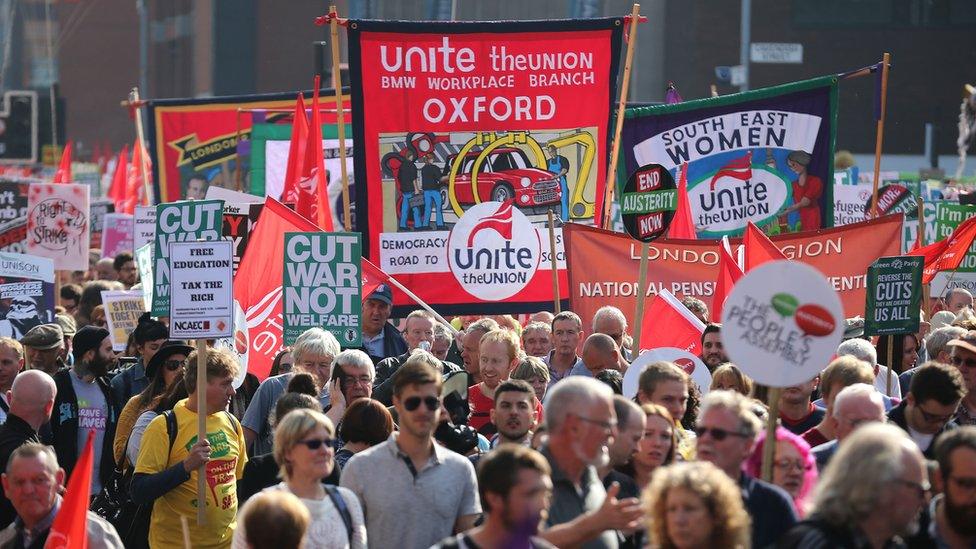
Thousands marched in Manchester against government austerity and the Trade Union Bill

The government's welfare changes
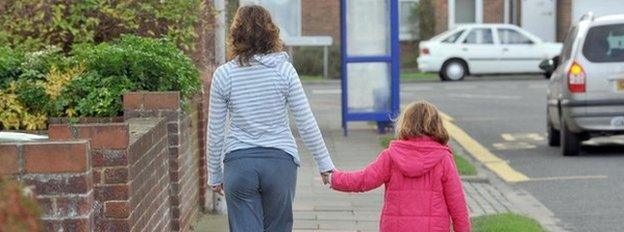

More than three million low-paid workers will be told just before Christmas how much they will lose from the changes to tax credits.
Former Conservative minister David Willetts has urged Mr Cameron and Chancellor George Osborne to look again at the changes - a view supported by Labour MP Frank Field and Conservative MP Boris Johnson.
Rosa Walden, a single mother of two who works full-time, said she would lose 10% of her income. She told BBC Radio 4's The World This Weekend: "If I stand to lose that amount of money, it's keeping me struggling, it's making things worse."
The Institute for Fiscal Studies has warned it is "arithmetically impossible" for nobody to lose out under the changes, while another think tank, The Resolution Foundation, which is headed by Mr Willetts, said more than one million households would lose an average of £1,350 a year.
IFS director Paul Johnson told BBC News the move to a living wage - which will increase the minimum wage to £7.20 an hour from April next year - was a "big change" but "not a big enough change to compensate most of those who are receiving tax credits".
'Better system'
Mr Cameron told the Andrew Marr Show the introduction of the National Living Wage and continued increases to the personal tax allowance would protect the poorest.
He said: "We have had the vote in Parliament on tax credits and I think people respect this argument that the National Living Wage - a 50p increase next year, so a £20-a-week pay rise, rising to £9 by the end of this Parliament - that is a very significant change that really helps to make work pay rather than a tax credit system that recycles money back to people."
He said the UK was moving to a "better system" where people pay less in tax and keep more of the money they earn.
Protesters surrounded Jeremy Hunt on his walk to the conference site
Asked about a possible further review ahead of next month's Autumn Statement, Mr Cameron said: "No, we think the changes we have put forward are right and they come with higher pay and lower taxes."
Labour's Jonathan Ashworth said: "David Cameron has shown that his promises to stand up for working families are a complete farce."
He said the PM's promises on a seven-day NHS had been made before and not delivered and the PM had "refused to come clean" in his Marr interview about when he was "informed directly" about the non-dom tax status of former Conservative Party donor Lord Ashcroft.
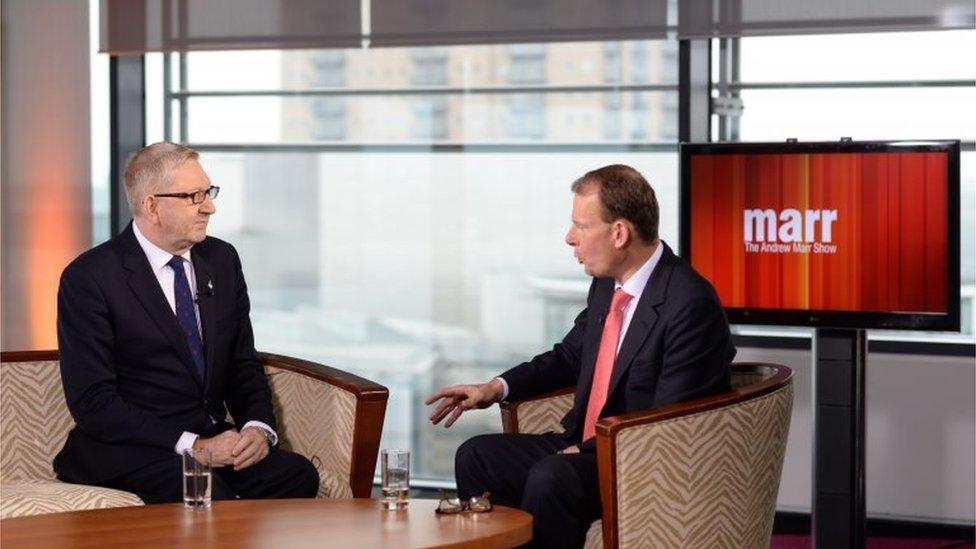
Unite leader Len McCluskey told the Andrew Marr Show he has never met the prime minister
Mr Cameron appeared to offer an olive branch to trade unions angry at plans to raise strike ballot thresholds, describing their offer of a compromise involving the introduction of electronic voting as "interesting".
"The trade unions are accepting these thresholds are right, that you shouldn't have damaging strikes that close schools or shut hospitals or stop underground systems working, you shouldn't have those things without a proper turnout of voters," he told Andrew Marr.
Mr Cameron suggested controversial parts of the Bill, such as a requirement for people on pickets to wear armbands and to have social media posts vetted in advance, could be reviewed.
"All these measures in the legislation can be discussed as they go through Parliament," he told Andrew Marr.
Mr McCluskey vowed to fight the "deeply divisive" Trade Union Bill by any means, warning: "If that pushes us outside the law, then it will be the prime minister's responsibility for the outcomes of that."
- Published4 October 2015
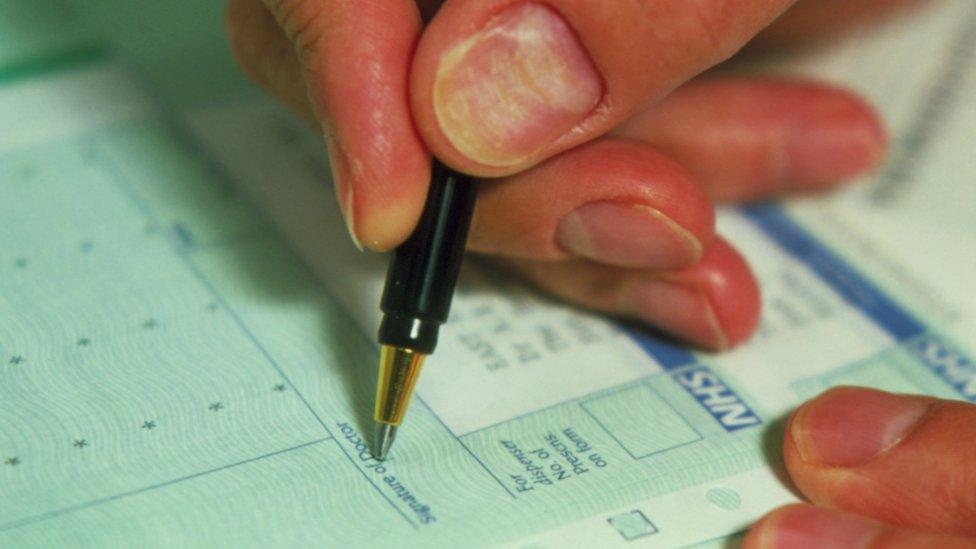
- Published4 October 2015
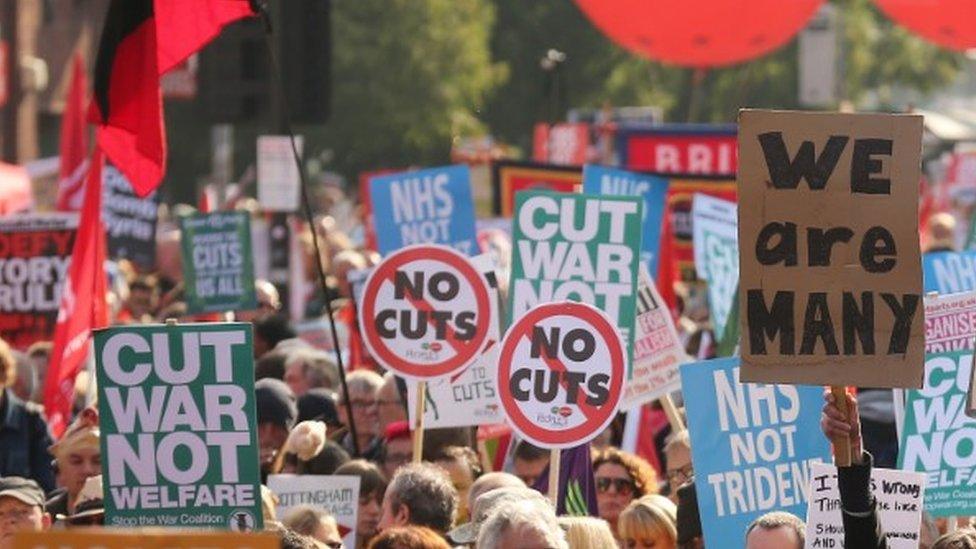
- Published11 November 2015
